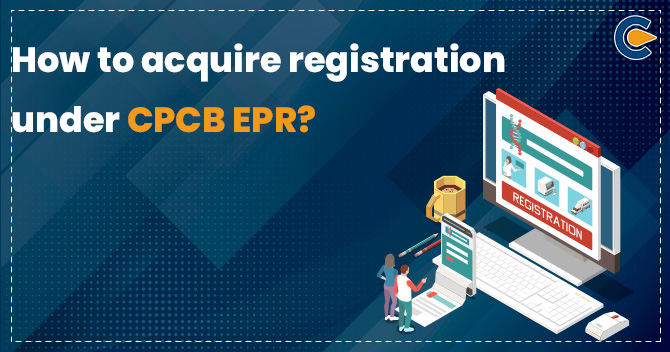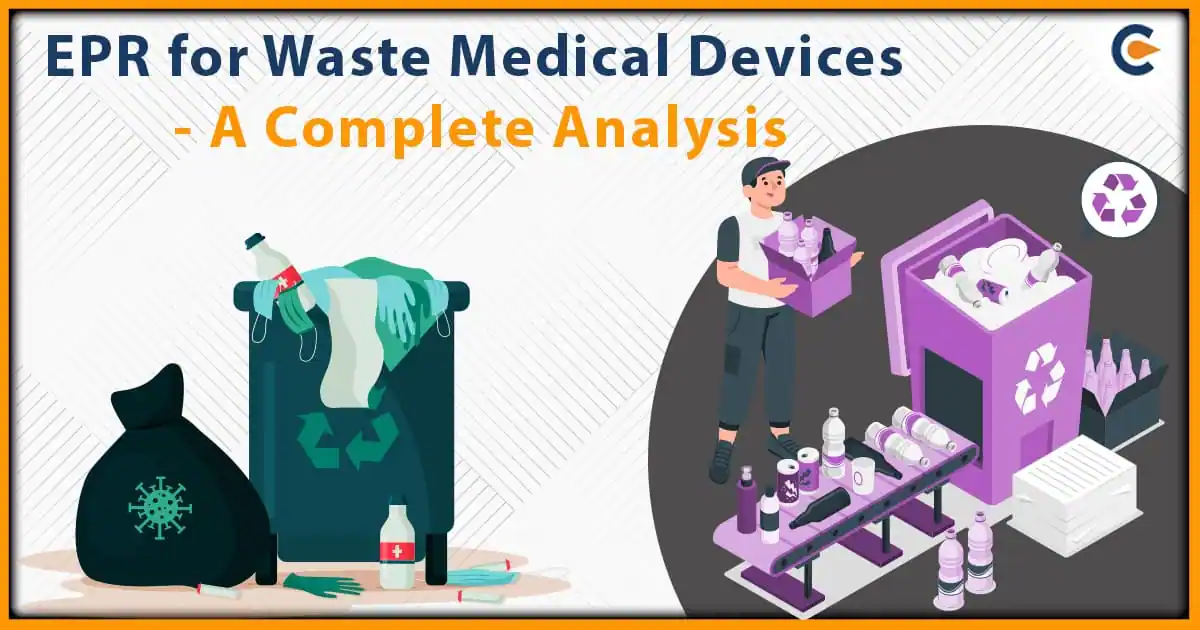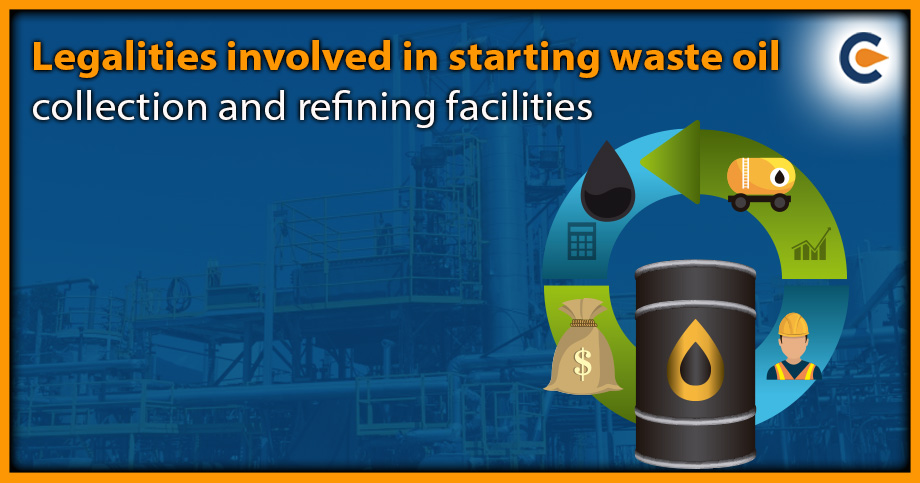EPR or Extended Producers Responsibility is used worldwide as a statutory approach to manage the staggering amount of Waste, whether be it plastic Waste or Electronic Waste. As per the latest report, around 109 countries globally have implemented EPR policy in their domestic law; along with this, global organisations like WWF[1] (World Wildlife Fund) and UN (United Nations) have also internationally recognised EPR as an important tool curb the growing pollution.
In India, this approach is governed under Plastic Waste (management and handling) Rules, 2011 and E-Waste (management and handling) Rules, 2011, where the powers for registration and other related procedures are delegated to CPCB EPR, that is, Central Pollution Control Board.
CPCB EPR is responsible for providing registration under the set procedure and keeping in check the proper implementation of the Extended Producers’ Responsibility.
Extended Producers’ Responsibility
Extended producers’ responsibility was first introduced in the Swedish Ministry of Environment report Models for Extended Producers Responsibility written by Thomas Lindhqvist as an approach to be used to shift in the burden of liabilities of waste management and environmental protection from state/ government/ authorities to the producers/manufacturers of products which may cause environmental damage or pollution.
As per OCED definition, EPR is an environmental policy approach in which a producer’s responsibility for a product is extended to the post-consumer stage of a product’s life cycle. As per this definition, EPR Responsibility is founded on these three pillars, which are “life cycle thinking”, “pollution prevention approach”, and “polluters pay principle”. As per CPCB EPR approach is the responsibility which delegates the liabilities to the producers of efficiently managing the Waste and making a sustainable product with increased longevity to become the contributors to decreasing the environmental pollution.
In India, the EPR policy was first introduced under the E-Waste (management and handling) Rules, 2011, which was later extended to the Plastic Waste (management and handling) rules as well for regulating the plastic manufacturers concerning plastic waste management.
EPR responsibilities in India are limited to plastic and electronic Waste, which are governed by The Plastic Waste and The E-Waste Management Rules, respectively. The MoEFCC defines EPR responsibility as the producer’s obligation for environmentally sound product management to the product’s end of life.
EPR liabilities on the Producers
EPR essentially puts three liabilities on the extent to which are, although not properly defined under the rules, have been specified in the definition. The three liabilities are:-
- Physical responsibility is when the producer has the liability to oversee the proper management of product and their impact on the environment. And if, through the end of the life cycle, the product is responsible for causing environmental damage, then it becomes the liability of the producer.
- Economic responsibility covers the liabilities on the manufacturer to bear all or a portion of the expenses which are involved in proper management that, including collection, recycling or final disposal of the Waste, which are to be paid directly by producers as a special fee.
- Informative responsibility is put upon producers for their products by calling for the producers to give more knowledge on the environmental details of the products they are making.
CPCB (Central Pollution Control Board)
The Central Pollution Control Board was constituted in September 1974 as a statutory body under The Water (Prevention and Control of Pollution) Act, 1974, which was further extended to The Air (Prevention and Control of Pollution) Act, 1981. It acts as a regulatory authority along with providing technical assistance to the Ministry Of Environment, Forest and Climate Change as per the stipulated laws of the Environment (Protection) Act, 1986.
The most primary function of CBCP is provided under The Water (Prevention and Control of Pollution) Act, 1974 and The Air (Prevention and Control of Pollution) Act, 1981, which is to encourage a clean environment which includes streams and wells situated in different states by prevention, regulation and reduction of water pollution. Along with this, it is also their responsibility to improve the air quality and to prevent, regulate and reduce air pollution. CPCB also directs the activities of the State Pollution Control Board by providing them guidance and resolving clashes among them.
As per the reports of CPCB, there are at least 128 sites which are polluted by toxic and hazardous substances in India, with West Bengal having 27 sites and Odisha 23.
Chairman heads Central Pollution Control Board. He is followed by Member Secretary and other project heads like Pollution Assessment, R&D and laboratory management, training, pollution control technology, pollution control enforcement, mass awareness etc.
Process of Registration by producers for CPCB EPR certificate
Central Pollution Control Board provides CPCB EPR certificate under the governance of the Ministry of Environment, Forest and Climate Change, Government of India. This is the mandatory registration that very producers, importers, and Bulk Consumers have to apply for.
Required Documents for Public Limited Company or Private Limited Company
- Earlier mentioned documents.
- Memorandum of Association.
- Certification of Incorporation (CIN).
- Company’s PAN card.
- Board Declaration for Authorized Signatory.
Required Documents for Proprietor
- IEC (Importer Exporter Code)
- Sole proprietor or KYC Authorized Signatory
- Submit the rent or lease proof.
- Excel sheet including details of imported products.
Procedure to acquire registration
- From the official site of CPCB, the producers are required to fill the application with all the related details, which will include the name of the producers, details of the electronic devices etc.
- The details should include further information on the approximation generation of Waste and approx. Target collection for the coming year and an action plan of extended producers’ responsibility.
- Following the submission of detailed information in the application, it is submitted accompanying the required documents stipulated by the authorities.
- Once submitted with the required document, the CPCB EPR reviews the application.
- After the Central Pollution Control Board reviews the application, the authorities then issue the CPCB EPR certificate.
Challenges with implementing CBCP EPR Policy
In every production line process, it is very important that proper implementation of Extended Producers’ Responsibility is being followed as per the guidelines and norms provided under the rules. The major challenges that are faced during this implementation are:-
Institutional Challenges: For proper implementation of EPR, it is very important that proper data is available to the authorities regarding the number of producers, manufacturers or bulk consumers, which due to the presence of a large section of the unorganised sector, is very difficult which in return become very difficult for the authorities to trace the producers and implementation of EPR by them. Along with this, unskilled labour also majorly contributescontributes to the producers’ lack of implementation of EPR.
Technological Challenges: Extended Producer’s Responsibility requires the setup of proper infrastructure to endure the ever-growing burden of Waste generated in the country, which is sorely lacking in India. The lack of proper infrastructure and connectivity to the collection centre makes it difficult for producers to fulfil their EPR Requirements. The recycling process requires costly and efficient machines, which becomes very difficult for producers to handle due to lack of proper funds.
Regulation challenges: Although the constant amendment of the plastic and E-Waste management rules does attempt to lessen the implementation gap present in the regulations and respond to all the concerns of the stakeholders. There are still many ambiguities left to be addressed, including properly defining the scope, including product, timelines and defining the target. Along with that, in the EPR Policy in India, it is very confusing for the stakeholder to understand their individual liabilities.
Conclusion
In spite of making CPCB EPR registration mandatory for any producers/manufacturers and bulk consumers, it has become very difficult for the pollution board to track the registration by unorganised sectors, which due to cost-effectiveness, is increasing in India day by day, contributing more to the environmental damage. Therefore it is the priority of the authority to implement the stringent rules for an unorganised sector or find the middle ground where both the registered producers and the unorganised industries can work together to properly manage the ever-growing Waste in India.
Read Our Article:EPR (Extended Producer Responsibility) Policy India











